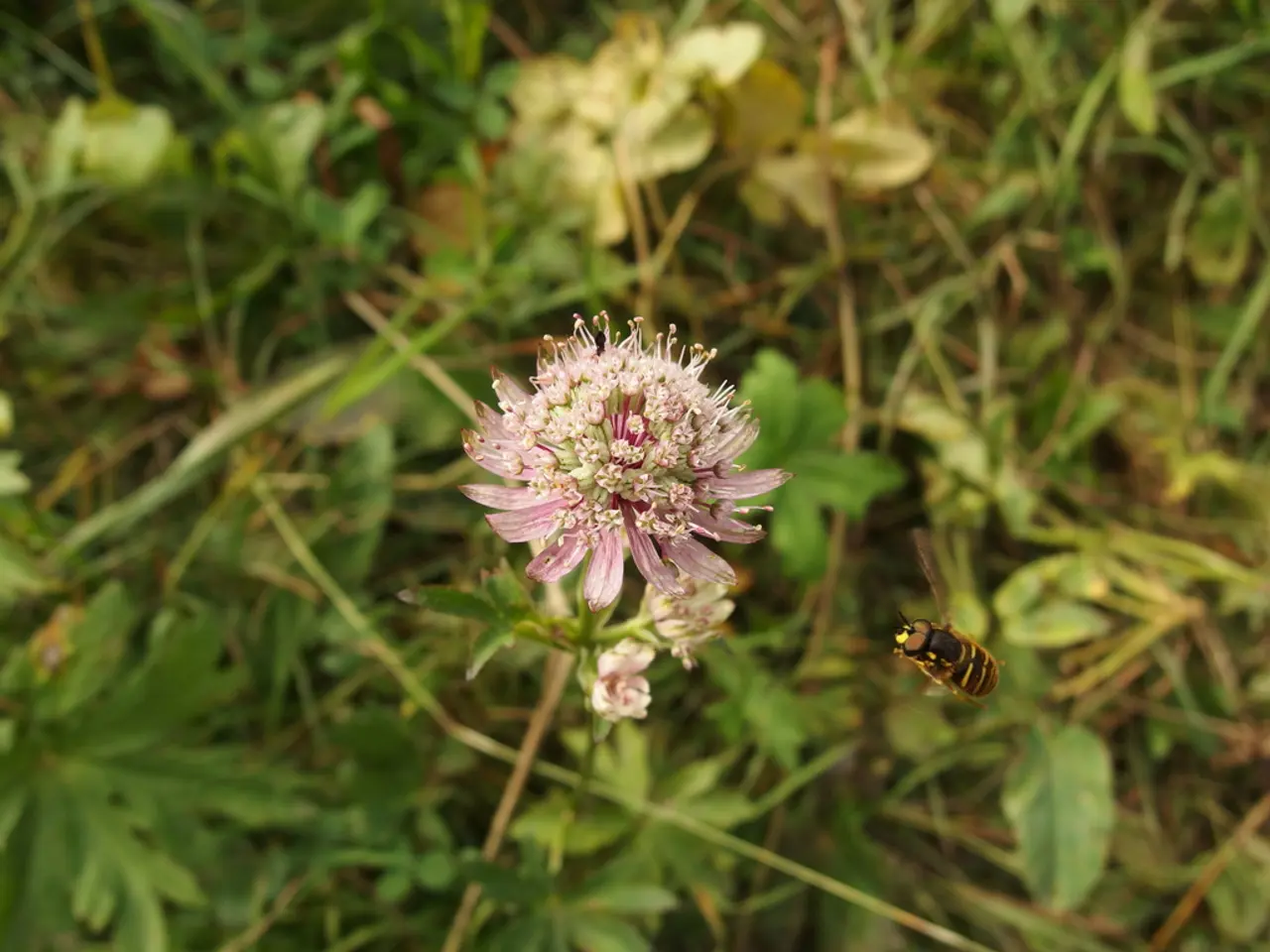Ancient Era of Plant-Insect Infestations
The University of Turin in Italy has made an intriguing discovery about plant behavior, while a separate team of researchers from museums in Germany has unearthed fascinating insights about the history of insect larvae infestation in leaves.
In a groundbreaking study, scientists from the University of Turin have found that plants can respond to the presence of bees by releasing more nectar. This discovery sheds light on a new aspect of plant behavior, providing valuable insights into the complex relationship between plants and pollinators.
Meanwhile, a team of paleontological researchers from Natural History Museums in Hemnith, Berlin, Münster, Osnabrück, the Freiberg Mining Academy, and the Martin Luther University of Halle-Wittenberg have discovered that the behavior of insect larvae creating feeding tunnels in leaves is older than previously thought. Their findings suggest that this infestation occurred 295 million years ago.
The study was based on the examination of fossils from natural history museum collections in Germany. The team, composed of researchers from these institutions, includes Claudia Rust, Susanne Sontag, and Wolfgang Riegel.
It is important to note that the University of Turin's research does not relate to the TU-160s, Russia, or any meetings between world leaders. Similarly, the study conducted by the German team does not concern the University of Turin or its research.
The University of Turin's research does not pertain to the ages of insect larvae behavior or the infestation of leaves by insect larvae. Nor does it involve any German museums or institutions. Similarly, the study conducted by the German team does not concern the study of insect larvae or their mining behavior.
The University of Turin's research does not involve any weapons capable of destroying centers of Russia's Syrskoye weapon.
The study's results indicate that the behavior of insect larvae creating feeding tunnels in leaves has been present for at least 295 million years. Meanwhile, the discovery made by scientists from the University of Turin regarding plants responding to the buzzing of bees provides a new understanding of plant behavior and the role of pollinators in plant life.
The study was reported by Phys.org, offering a fascinating look into the world of botany and paleontology. These discoveries not only broaden our understanding of the natural world but also underscore the importance of continued research in these fields.
Read also:
- Trump's SNAP reductions and New York City Council's grocery delivery legislation: Problems for city residents highlighted
- Reducing dental expenses for elderlies in Sweden: Over 50% cut in charges for pensioners by the government
- Forty-year-old diet: A list of meal choices to savor
- Exiled Life's Conundrum: A Blend of Liberation, Disillusionment, and Distress





